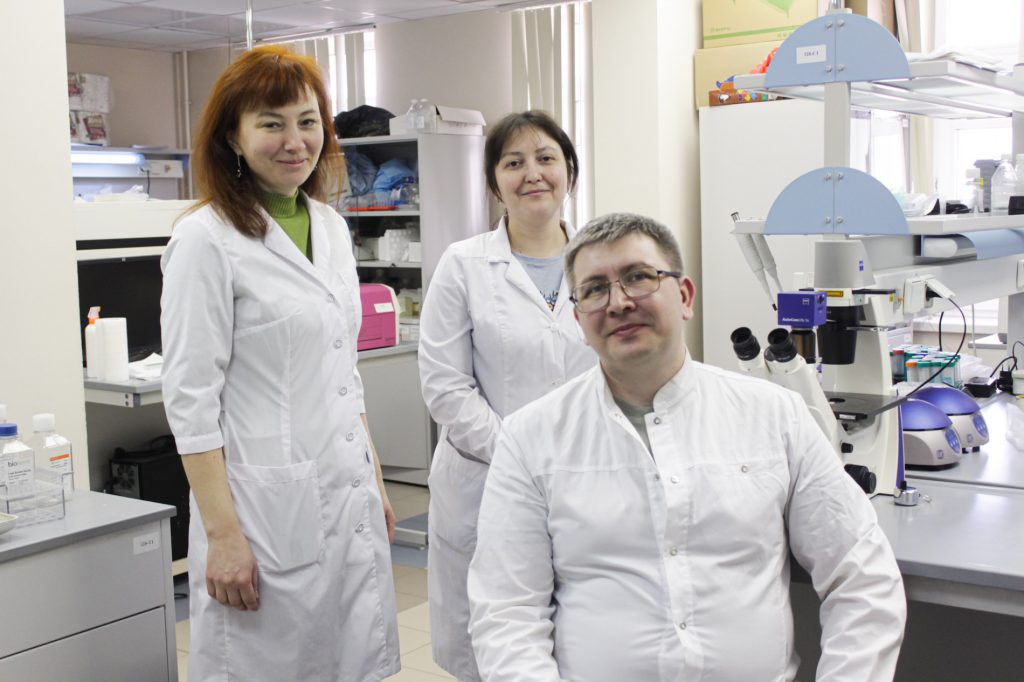Scientists show artificial sterlet meat

KFU’s Laboratory of Regenerative Veterinary Science studies muscle tissue growth technology for meat production.
Lab Head Yelena Zakirova says, “There are many techniques for artificial meat production. As for fish, there is new information about muscle cell production for species of carps. For our growth experiments, we chose sterlet for its high nutritional value.”
Senior Research Associate Albina Malanyeva elaborates, “We offer a new technique for the cultivation of myoblasts from fish muscle tissue. Lab experiments have shown promise. As a result, we have a method for sterlet muscle growth in vitro.”
Senior Research Associate Alexander Aymaletdinov explains, “Myoblasts are cultivated in a bioreactor. To obtain structured meat, we use a bioprinter. The product takes 5 to 14 days to come to its finished state in an incubator.”
Sterlet, included in Russia’s list of endangered species, is not available for fishing. The researchers are convinced that the artificial meat will be indistinguishable from the natural analog. Sterlet is rich in vitamins, unsaturated fatty acids, fluorine, calcium, and protein.

